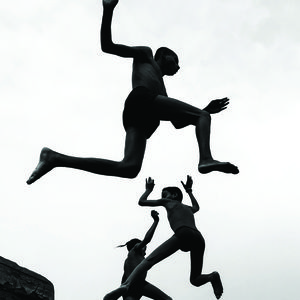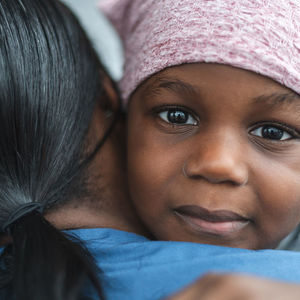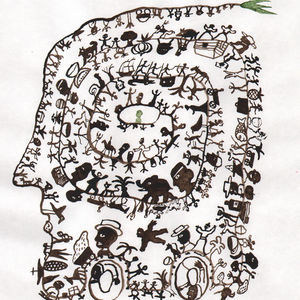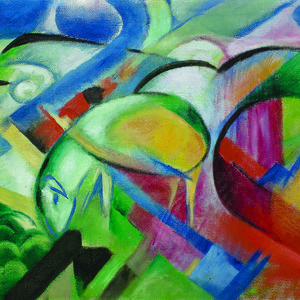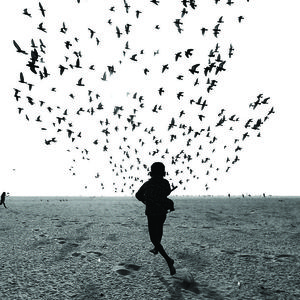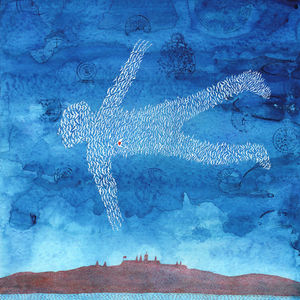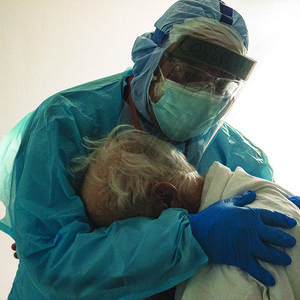- Doing Good
- Goodness Gracious
- Pain Relievers
- Call It Human Nature
- Storylines
- The Sickness Swing
- The Sound of Sublime
- Moving Pictures
- Body Language
- A Quiet Incarnation
- Giving Upward
- Dauntless Luminescence
- The Shining Joy of Falling Flat on Your Face
Most days, after the morning Zoom calls have ended, my daughter and I take a short walk to a neighborhood swing. It’s not particularly impressive: a weathered board roped to a decaying maple in the front yard of a home a few blocks away. The house is a rental, college students from a nearby campus. Mossed-over roof, collapsing gutters, rain-buckled table on the front porch. We’re there at the same time every day, my daughter’s makeshift “recess” during distance learning. I doubt the renters realize we’re having recess; we’re just the two goofy intruders who appropriate their swing each morning.
It started when the playgrounds were all closed due to the pandemic, which my daughter calls The Sickness. She was still asking for a place to swing. She’s 12 years old, but struggles with a brain difference that pegs her developmental age at something closer to 5 or 6. Among her many challenges is a form of sensory-seeking that she’s learned to soothe with the regulating rhythms of a swing. As a toddler she was in perpetual motion, vacillating from one activity to another. Searching for an explanation, we received from a host of specialists a veritable dictionary of words to describe this behavior. But my favorite came from Grandma Betty, an elderly volunteer at a day care center. Watching our daughter on the carpet one afternoon as I arrived for pick-up, she noticed me standing there, drew a whistle of air between her teeth, and said:
“Whooo, there’s a lot of music in that child.”
One morning, I ask my daughter why she loves the swing so much. What is it about coming here that makes her want to return every day?
“Because,” she says, “it feels like flying.”
The swing is a plank, perhaps two feet long, six inches wide. Dark wood, burnished to a sheen. The ropes are moss-slick and braided, ascending to a limb that long ago swallowed the attaching knots. When she really gets going, my daughter’s feet kick out past the sloping lawn, soaring far above the sidewalk below. The yard faces a wide, busy boulevard that borders the college campus. Drivers slow down to watch us swing. Passing cyclists throw us chin nods. A woman with a cane and an asthmatic bulldog stops to shout greetings from the curb. Two joggers veer onto the grassy strip, pausing to glance wistfully back. A FedEx driver attempts to hand us a package meant for the renters.
I point him to the front door. “We just use the swing.”
October, and I’m toweling rain off the wood.
“Daddy,” she says, “this is our Sickness swing, right?”
“You got it.”
“Because it’s the only swing open? And all the other swings are closed for business?”
“That’s true, unfortunately.”
“But the difference is that the Sickness is bad? And the swing is good?”
“Yes,” I say, “I think that’s right.”
On the Zoom calls she is sequestered to a screen. Hemmed in by a grid of lines dividing her from her classmates, each student a separate broadcast. We watch The Messy Kitchen Table Show. The Bunkbed Show. The Stuffed Animal episode. The teachers are heroic, the distractions myriad. Sometimes we’re pixelated, glitchy or lagging. My daughter stares at her face on the screen, fixing her expression, trying out new looks. Sometimes she’s muted, by me or her teacher. She clicks a button to raise her hand, hoping to be noticed. Heard. Acknowledged.
On the swing there is no mute button, no glitching. Nothing contains her or separates her from the world. She can’t see her face, only the light poking through the canopy. There’s no need to fix her expression, no self-regard at all, only riotous laughter. On the swing she is uninhibited, unmuted, uncontainable. On the swing, she is all music.
“We’re getting pretty good at this, aren’t we?” she says one day.
“Sure are,” I say.
“We’re like, pros at this.”
“Definitely,” I say. “No one better. We’re like, the best to ever swing on this swing. Hall of Famers — first ballot. Jerseys in the rafters.”
She has no idea what a ballot is, or a rafter, but she seems reassured by this idea — our collective, unrivaled expertise. She breaks into a wide grin, starts rocking to gain altitude. Just then, two of the renters step outside. I give them the standard neighborly nod, but this time they stop for introductions. One of them mentions how much she and her housemates appreciate the swing being used. The joy it brings them to hear a child giggling out front.
Which is when that giggling child interrupts.
“So,” she says, “are you gonna tell them?”
“Tell them what?” I say.
“You know. . . .” she says. “About us.”
“What about us?”
“That we’re professional swingers.”
We discuss so many things while she’s swinging.
Stuffed animals, Halloween costumes, caterpillars, horse grooming, deodorant, belligerent crows, how you know when you’re in love, samurai swords, how long I can hold my breath underwater — the whole gamut. Today we’re talking about a book: Shel Silverstein’s The Giving Tree. It’s still one of her favorites, she assures me, but the ending always leaves her sad. How the tree gives the boy everything — “I mean, everything, Dad” — until all that remains is a stump for the boy to rest upon.
“But this swing is like that,” she says. “Always there, and a good place to sit.”
She keeps swinging, pumping legs that I’ve watched grow longer with each pandemic month, but I can’t stop thinking about those words. Always there. Good place to sit. How the swing is such a small piece of real estate in this world. No more than a shard of wood. A rain-bloated plank, two fraying ropes. The simplest contraption. And yet somehow, over the course of months, it’s become something else. A point of connection in a time of isolation. A destination, when we badly needed one. Our Sickness swing, yes, but also our joy swing. Our laughter machine. Our hope engine.
I think of the unexpected ways a small thing can sustain you. The old dichotomy — good or bad — and how the swing is all good. How it mirrors hope itself, receding and advancing, fading, then surging back. A weathered, burnished thing. Scruffy and frayed, but reliably there. Sturdy enough. Waiting, each morning, with a place to begin.
David Devine lives and writes in Portland, Oregon.
